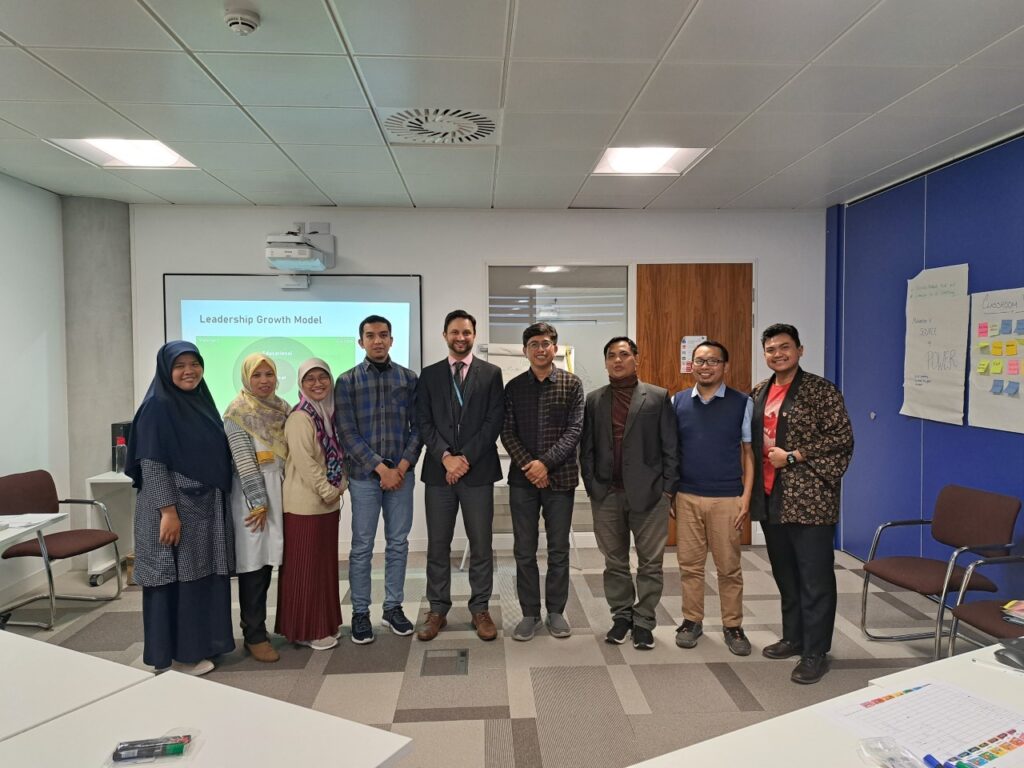
NSAR delivering professional skills in China
The National Skills Academy for Rail (NSAR) support training & assessment providers and ensure the quality of training provision is of a high standard. Through knowledge and intelligence, NSAR helps the rail and infrastructure sectors & its employer members make informed decisions and target investment in resource planning.
NSAR’s brokerage role enables industries to increase its competitiveness through matching skills and workforce demand to training and education supply for both up-skilling and apprentices, thus enabling companies to deliver a more efficient business and service; having the right people at the right time in the right place.
NSAR is trusted by the industry to provide workable solutions for the provision of skills needed for the increasing demands of a modern economies. It develops people to excel every day, challenging the status quo and inspiring a change in the way skills and competences are delivered.
The National Skills Academy for Rail (NSAR) occupies a unique position sitting between the key stakeholder groups, employers, academia and training providers in the sector having strong links to each.
NSAR supports employer, training providers facilitate training requirements in addition to working with Rail Engineering, Infrastructure Operations and Network Operations in the development of everything from labour marketing information (LMI), through skills standards and curriculum development, training and assessment, teacher capacity building and certification.
Find out more about NSAR’s wide range of skills and training services. >>
Chinese businesses are seeking to improve the productivity of their workers. Lower level skills levels, coupled with a less developed tradition of work based learning are inhibiting growth and sustainability. Local government departments supported investment in new machinery for the factories and wished to see workers skills developed in order to use the equipment for effectively and safely.
NSAR supported an FCDO skills programme that was designed to support China in developing its skills capability and meet its economic development needs for the future.
NSAR designed and delivered a pilot training programme comprising of three outputs:
- Deliver a workplace training programme adapted from EAL Level 3 Manufacturing curriculum (Mold and Die)
- Organise and deliver a Study Tour to meet with UK Vocational Colleges and Skills Bodies for a delegation from Ningbo Education Bureau and Ningbo Polytechnic
- Organise and deliver a dissemination seminar to share knowledge and lessons learnt from Output 1 and 2
NSAR also developed and delivered a comprehensive programme of training for teachers, managers and officials from Zhenzhou in strategic workforce planning.
Workforce planning is an essential component for ensuring training investment is well made and targeted. Chinese local and regional officials, and the top railway college in China wanted to understand and share best practice and to align supply and demand, as well as targeting training at their infrastructure sectors.
NSAR supported the transformation of how skills are delivered through developing and implementing a unified skills strategy to ensure that training capability and capacity meets the future needs of industry as it strives towards world class competitiveness.
After consultation with all stakeholders, a modular training programme built around the requirements of the UK EAL Level 3 National Vocational Qualification Diploma in Mechanical Manufacturing Operations was implemented.
The content covered a summary of regarding Health and Safety regulations and interpreting engineering data. Alongside this, practical units covering Centre Lathes, CNC lathes, CNC milling machines, hand fitting techniques and final assembly were also included to both ascertain and develop student competence across a varied field.
In Zhenzhou, the training of trainers and managers course, was delivered remotelyy, describing features, advantages, systems and techniques for workforce planning.
The training included understanding a suite of IT products to help address the challenges that workers were facing in forecasting skills supply and demand, in recruiting the right people, tracking individual skills and competency progress as workers move through their career. The products are designed to interface with each other thus providing a seamless solution.
NSAR’s Skills Intelligence Model (SIM) – A statistical tool used data on the current workforce to forecast the future required workforce. The SIM calculated the demand for skills and measure the impact of productivity improvement and the adoption of technology.
NSAR-CONNECT – is an online placement service dedicated to retaining talent in the rail sector. The online platform enabled th industry to join forces in a collaborative way to actively attract, redeploy and recruit talent where it is most needed. NSAR Connect is a flexible tool that can be deployed to promote the ‘attraction, development and retention’ of people and skills across all business sectors and industries.
NSAR’s SkillsID – Allowed employers to hold all its data on the skills and competency records of their workforce in a one place. Data could be viewed at organisational, team and the individual level with an advanced search function facilitating searches against specific criteria.
Mobilisation and training – Working together in the configuration and testing of the system to ensure that the data and the system are functional before releasing to the LIVE environment. This ensured that all of the required security roles and access levels are in place before login details are issued. The security roles and access level will determine the data people are able to view, report and edit.
Of the 32 students who commenced the training, 27 saw this through to conclusion; with 21 of those achieving full attendance. Throughout the course each student was monitored via verbal assessment by the instructors to assess learning and competence as well as observational assessment based around understanding of documentation and drawings alongside appropriate use of tools and equipment and their application. The successful and timely completion rate for the practical element of this training was 81.5% achievement, this score being influenced by a number of factors including;
• Prior levels of student competence
• Complexity of components to be manufactured
• Materials and equipment used during the production processes
Given additional time, all students would have achieved satisfactory completion of the practical element of this course.
The written assessment carried out at the end of the course achieved a success rate of 89% based on an assumed pass mark of 80%, industry standard for general engineering in the UK. The written assessment consisted of fifteen questions (open text and multi-choice) based on the theoretical and practical learning throughout the course.
The outcomes were that nearly all workers successfully completed the programme, and that local employers were surprised at what they could now do, with follow up suggesting that company portfolios had expanded and better use was being made of existing machinery.
Additionally, the local trainers were exposed to new ways of delivering to UK standards, which will increase their ability to offer level 3 programmes in future.
This offers the prospect of developing a strategic relationship with Ning Bo in the workforce development space, as well as offering training programmes in adjacent disciplines.
This establishes UK as a market leader in this skills set and should support subsequent export of further training, consultancy and software systems.
The outputs from the SIM are valuable to providers of skills training as it provides guidance on the development of training programmes. And can report at an industry and company level in a concise yet easy to interpret way.
The SIM allows users to conduct skills supply and demand scenario mapping, business modelling, cost savings and efficiencies projections and is endorsed by the UK Government and is being used not only within the rail sectors, but across other business sectors, including energy and aviation.
SkillsID enabled employers to track the competences of their workforce overtime, conduct performance assessments identify under/over performers and provide valuable data to support succession planning.
How does the SIM help enterprises:
- provides dynamic analysis of talent demand
- sets out the occupational competency structure requirements of industry
- enables the collection and analysis tools for human resource information
- supports the application and positive impact of SIM human resource analysis report in industry changes and trends in the demand for vocational competence
How does the Skills Connection (SIC) serve enterprises and employment?
- SIC’s occupational competence focus in matching the employment demand of enterprises and the intention of the employment group
How does the Skills ID (SID) realize skills verification and skills training?
- records and evaluates individual skills development process
- after analysing personal skills, it develops supporting training programmes for weak skills, including design principles, development cycles and existing resource contents
Some additional helpful resources from NSAR:
- NSAR Skills and Apprenticeships standards: https://www.nsar.co.uk/apprenticeshipstandards/
- NSAR Skills Intelligence Model (SIM): https://www.nsar.co.uk/sim/
Contact NSAR International now: https://www.nsar.co.uk/international/












